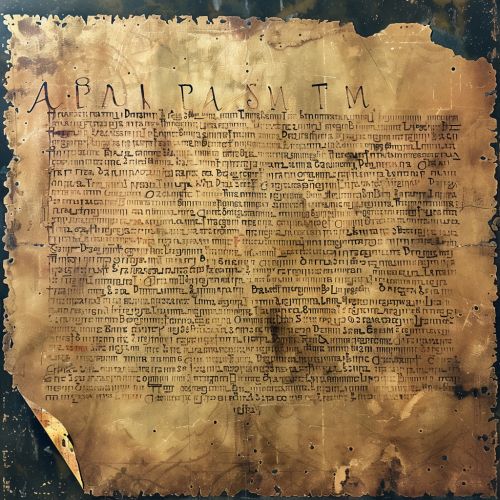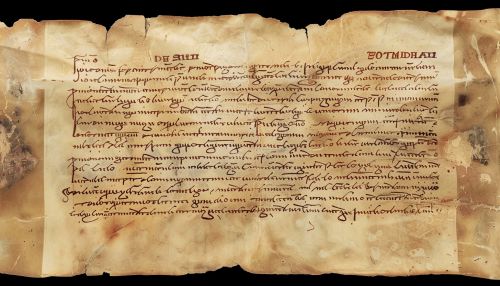Pastoral epistles: Difference between revisions
(Created page with "==Introduction== The Pastoral Epistles are a group of three books in the New Testament of the Christian Bible, traditionally attributed to the Apostle Paul of Tarsus. These letters, namely 1 Timothy, 2 Timothy, and Titus, are addressed to individuals with pastoral oversight of churches and form an important part of the Pauline corpus. ==Authorship== The authorship of the Pastoral Epistles has been a subject of extensive debate among biblical scholars. Wh...") |
No edit summary |
||
| (One intermediate revision by the same user not shown) | |||
| Line 9: | Line 9: | ||
==1 Timothy== | ==1 Timothy== | ||
[[Image:Detail-77767.jpg|thumb|center|A parchment with ancient Greek script, symbolizing the first epistle to Timothy.|class=only_on_mobile]] | |||
[[Image:Detail-77768.jpg|thumb|center|A parchment with ancient Greek script, symbolizing the first epistle to Timothy.|class=only_on_desktop]] | |||
The First Epistle to Timothy is primarily a manual of church order, providing guidelines for the conduct of church leaders and members. It emphasizes the importance of sound doctrine, warns against false teachers, and encourages Timothy to fulfill his duties and responsibilities as a leader. | The First Epistle to Timothy is primarily a manual of church order, providing guidelines for the conduct of church leaders and members. It emphasizes the importance of sound doctrine, warns against false teachers, and encourages Timothy to fulfill his duties and responsibilities as a leader. | ||
Latest revision as of 18:08, 7 May 2024
Introduction
The Pastoral Epistles are a group of three books in the New Testament of the Christian Bible, traditionally attributed to the Apostle Paul of Tarsus. These letters, namely 1 Timothy, 2 Timothy, and Titus, are addressed to individuals with pastoral oversight of churches and form an important part of the Pauline corpus.
Authorship
The authorship of the Pastoral Epistles has been a subject of extensive debate among biblical scholars. While traditional view holds that Paul is the author, modern scholarship often expresses doubt about this attribution, citing differences in language, style, and theology compared to the undisputed Pauline letters. This has led to the theory of pseudonymous authorship, suggesting that these letters were written by a later author in Paul's name.
Content and Themes
The Pastoral Epistles contain specific advice on church order and pastoral responsibility. They address a variety of issues, including qualifications for church leaders, instructions for dealing with false teachings, the role of women in the church, and the importance of sound doctrine. A recurring theme is the need for purity in both doctrine and conduct.
1 Timothy


The First Epistle to Timothy is primarily a manual of church order, providing guidelines for the conduct of church leaders and members. It emphasizes the importance of sound doctrine, warns against false teachers, and encourages Timothy to fulfill his duties and responsibilities as a leader.
2 Timothy
The Second Epistle to Timothy is often considered the most personal of the Pastoral Epistles. It contains Paul's final words to Timothy, encouraging him to remain faithful in the face of hardship and to continue the work of the gospel. It also includes a poignant reflection on Paul's own impending death.
Titus
The Epistle to Titus shares many themes with 1 Timothy, including the qualifications for church leaders and the need to counter false teachings. It also emphasizes the importance of good works as a demonstration of faith.
Theological Significance
The Pastoral Epistles have played a significant role in shaping Christian ecclesiology and pastoral theology. They provide a window into the concerns and challenges of the early Christian community, and their teachings continue to influence Christian thought and practice today.
Criticism and Controversy
The Pastoral Epistles have been the subject of various criticisms and controversies. These include debates over their authorship, their teachings on women's roles, and their apparent endorsement of slavery. Despite these controversies, they remain an integral part of the New Testament canon.
